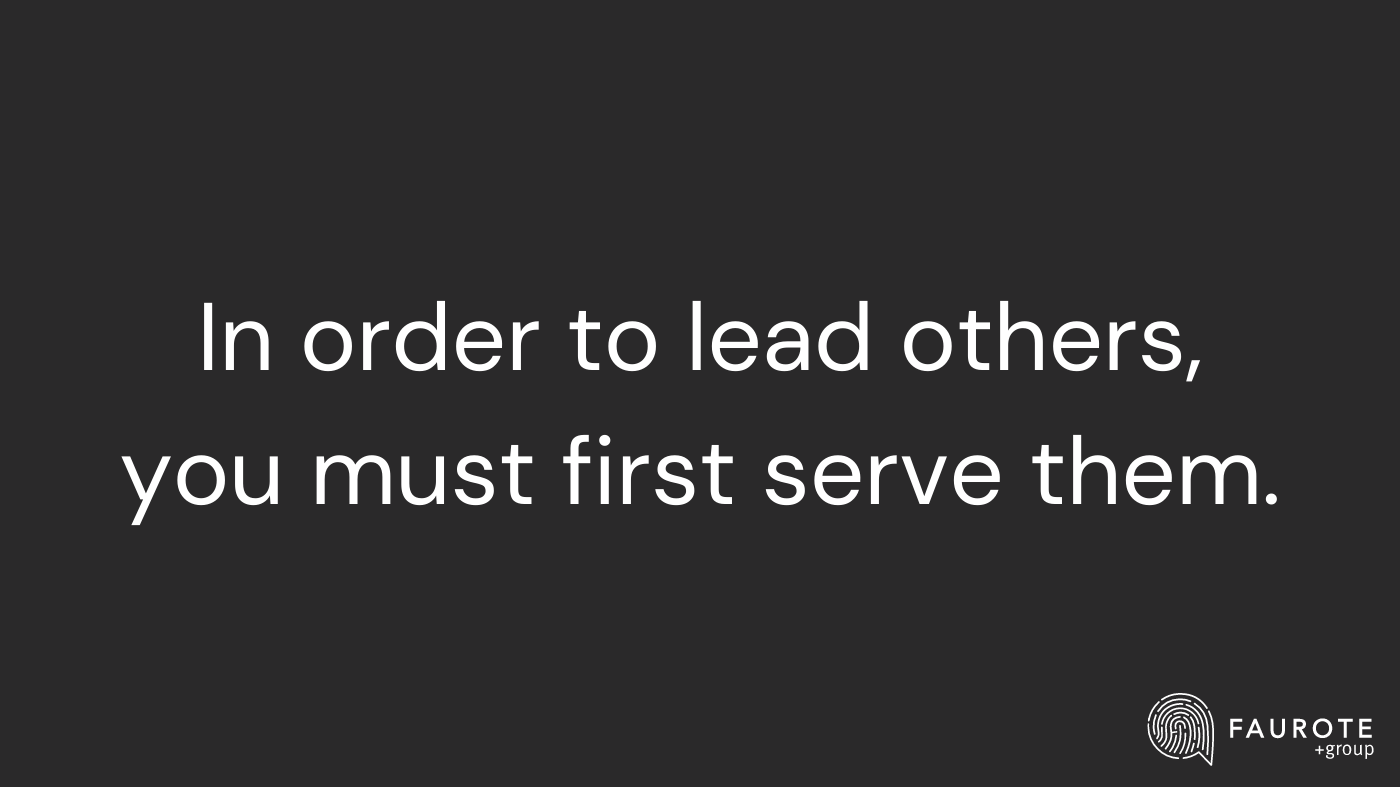Servant Leadership
What is leadership? Talk to twenty different people and you are likely to get twenty different answers. Answers ranging from visionary, decision maker, authoritarian, charismatic, good communicator, resilient, knowledgeable, risk taker, mentor, coach, persistent, fair, integrity, trustworthy, passionate, strong character, compassionate, confident, enthusiastic, courageous, influential, goal oriented, etc. All are good characteristics of leaders; however, there is one word that is missing and it has everything to do with leadership. You will not find this word in the American Heritage Dictionary either. The American Heritage Dictionary defines lead/leadership as follows: to act as a commander, director, or conductor; to be at the head; foremost position; to aim in front of; to guide by taking by the hand; and to cause to follow some course of action or line of thought (induce). None of these words capture the true essence of leadership.
At its core leadership is about getting people to want to follow you because of who you are not because of where you sit or the title on your business card. If you want people to truly want to follow you, you need to serve their needs. Of course you need to have many of the characteristics listed above as well; however, you will not get people to willingly follow you if you do not serve their needs. Servant Leadership is based upon the fundamental principle that in order to lead others, you must first serve them. As a leader, you must recognize that you only succeed when those around you succeed. Thus, in order to make an impact, you must answer the question: what do others need from me to succeed? Once you identify the needs of others, the job of a leader is to serve and fulfill those needs.

Unfortunately, a high percentage of “positional” leaders do not grasp this fact. They believe that because they are in a leadership position they are actually leaders and people follow them because they want to. These individuals are victims of the “position” myth: leadership is based on position. People follow positional leaders because they have to not because they want to. The fact is leadership is based on the person: the person of character; the person who cares; the person who seeks ways to help others succeed; the person who puts others interests above his/her own; the person who knows leadership is about serving others’ needs.
To illustrate this point, take a moment and think of someone you have worked for who truly had your best interest at heart, did everything to help you be your best and succeed, was there with you rolling up his/her sleeves ready to help, told you the truth even when it hurt, or made you feel special. Now that you have identified that person the question is “what would you do for that person?” “run through a brick wall,” “anything.” The fact is you are willing to do whatever it takes to help that person. You are willing to follow them because of who they are not because of how smart they are or where they sit. This anonymous quote sums it up best “I don’t care how much you know until I know how much you care.” Servant leadership is even more important in the business world today. People do not follow leaders just because: they are the boss, they are in a leadership position, they are the most knowledgeable, or they said so. They follow leaders they trust and respect. Unfortunately, a lot of leaders are missing both of those key elements. If you want to be a respected and trusted leader that people want to follow, serve your way to the top.
Book Suggestions:
Serve to be Great, by Matt Tenney 
The Servant, by James Hunter 